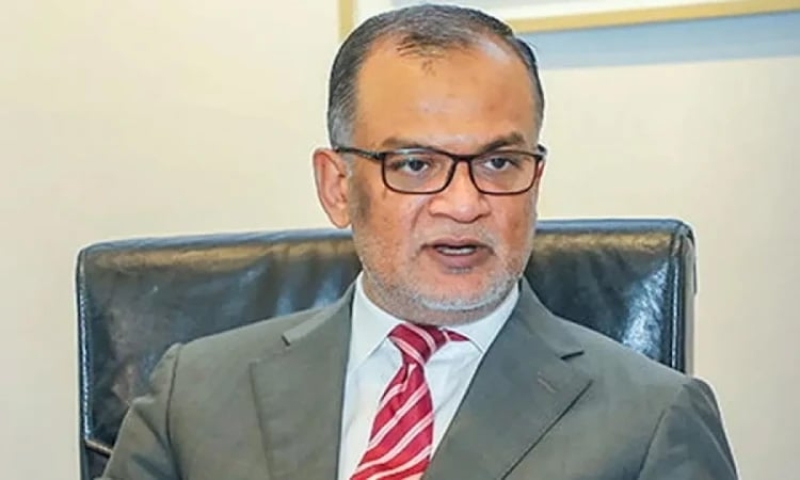- India Sees 9% Drop in Foreign Tourists as Bangladesh Visits Plunge |
- Dhaka Urges Restraint in Pakistan-Afghan War |
- Guterres Urges Action on Safe Migration Pact |
- OpenAI Raises $110B in Amazon-Led Funding |
- Puppet show enchants Children as Boi Mela comes alive on day 2 |
It's the Right Time to Invest in Bangladesh: Commerce Adviser

Commerce Adviser Sk. Bashir Uddin has emphasized that now is the perfect time to invest in both local and Foreign Direct Investment (FDI) in Bangladesh, noting that the country is making steady progress and heading in the right direction.
"I believe this is the right time for investment. Every day, we are witnessing progress, and the issues that once hindered development are being addressed," he said during a recent interview with the national news agency at his office at the Bangladesh Secretariat.
When asked to assess the private sector's confidence over the past seven and a half months, Bashir expressed optimism. "Since the mass uprising on August 5, 2024, things have taken a positive turn and are heading towards improvement. This is definitely a good time to invest," he added.
Reflecting on the economic challenges under the previous Awami League (AL) regime, Bashir pointed out that while efforts were made to foster economic growth, issues like resource distribution and the emergence of 'cronyism' marred the country’s economic landscape. "The distribution of capital was misdirected, with money being laundered abroad, instead of being reinvested into the economy," he said.
However, he highlighted that the situation has now shifted. "The environment for investment is much more favorable now. The government is focused on making trade policies more liberalized, especially after the country’s graduation from the Least Developed Country (LDC) status," Bashir remarked.
He acknowledged that while LDC graduation would bring both challenges and opportunities, it is precisely these opportunities that investors should capitalize on to address existing issues and unlock potential for growth. "As we create more opportunities, more investments will flow, which will help tackle the emerging challenges," he said.
Despite Bashir’s optimism, experts have raised concerns about the declining trend of FDI in Bangladesh in recent years, citing factors such as high inflation, rising unemployment, financial instability, and ongoing political uncertainties. Issues like bureaucratic inefficiencies, inconsistent policies, and corruption have also contributed to the lack of foreign investor confidence.
The political turmoil, marked by violent protests and government crackdowns in 2024, has further exacerbated concerns, disrupting production and the supply chain.
In response to these challenges, the government is reviewing existing policies and working to address inconsistencies. To bolster confidence, Bangladesh is set to host the "Bangladesh Investment Summit 2025," scheduled for April 7-10 at the InterContinental Hotel in Dhaka. The summit will highlight Bangladesh’s evolving investment landscape and showcase ongoing economic reforms.
The summit aims to attract over 3,000 investors from 50 countries, including China, the US, the UK, India, Singapore, and Japan. Notably, a 26-member South Korean delegation will visit key industrial areas such as Chattogram, Mirsarai, and the Korean EPZ to get a firsthand view of Bangladesh’s investment opportunities.
In addition, the event will feature a startup-focused gathering on April 7, a visit to the Bangladesh Special Economic Zone (BSEZ) in Araihazar, Narayanganj, on April 8, and a series of breakout sessions on April 9 and 10 covering sectors like digital economy, textiles, agriculture, healthcare, and renewable energy. A matchmaking session and a roundtable discussion on global investment practices will also take place.
The summit will culminate with a cultural night showcasing Bangladesh’s rich heritage, further promoting the country as an attractive destination for foreign investment. Bashir remains hopeful that this event will be a catalyst for long-term economic growth and help steer the country toward a brighter investment future.

